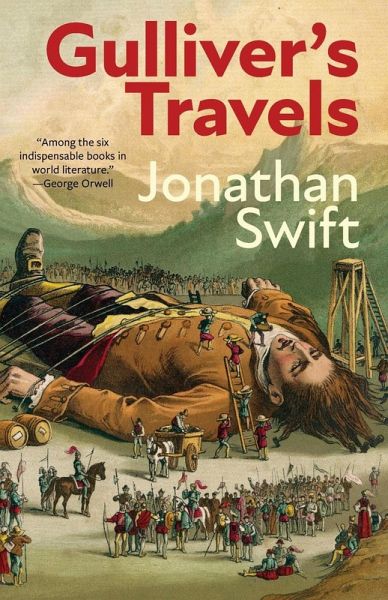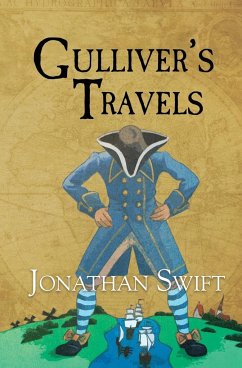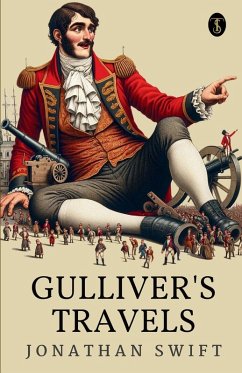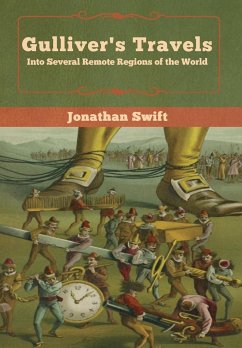
Gulliver's Travels (Warbler Classics Annotated Edition)
Versandkostenfrei!
Versandfertig in 1-2 Wochen
12,99 €
inkl. MwSt.

PAYBACK Punkte
6 °P sammeln!
Jonathan Swift skewered society, commerce, politics, and war in his greatest work, Gulliver's Travels. The four-part tale opens with a shipwreck on the island of Lilliput, whose inhabitants are just six inches tall. One fierce controversy concerns which end of an egg to crack open. In part two, Gulliver's ship ends up on Brobdingnag, an island of giants, where he is exhibited as a curiosity and partakes in cutting political tête-à-têtes with its king. In part three, Gulliver encounters Houyhnhnms, horses with the qualities of rational men. These he contrasts with the barbaric Yahoos, brutes...
Jonathan Swift skewered society, commerce, politics, and war in his greatest work, Gulliver's Travels. The four-part tale opens with a shipwreck on the island of Lilliput, whose inhabitants are just six inches tall. One fierce controversy concerns which end of an egg to crack open. In part two, Gulliver's ship ends up on Brobdingnag, an island of giants, where he is exhibited as a curiosity and partakes in cutting political tête-à-têtes with its king. In part three, Gulliver encounters Houyhnhnms, horses with the qualities of rational men. These he contrasts with the barbaric Yahoos, brutes in human shape. Finally, Gulliver returns from his travels with bitter insights into the nature of man and the barbarism that underlies so-called civilization. This Warbler Classics edition is based on the complete first edition of 1726, reproduces all of the original illustrations, and includes a biographical timeline of Swift's enigmatic life.













